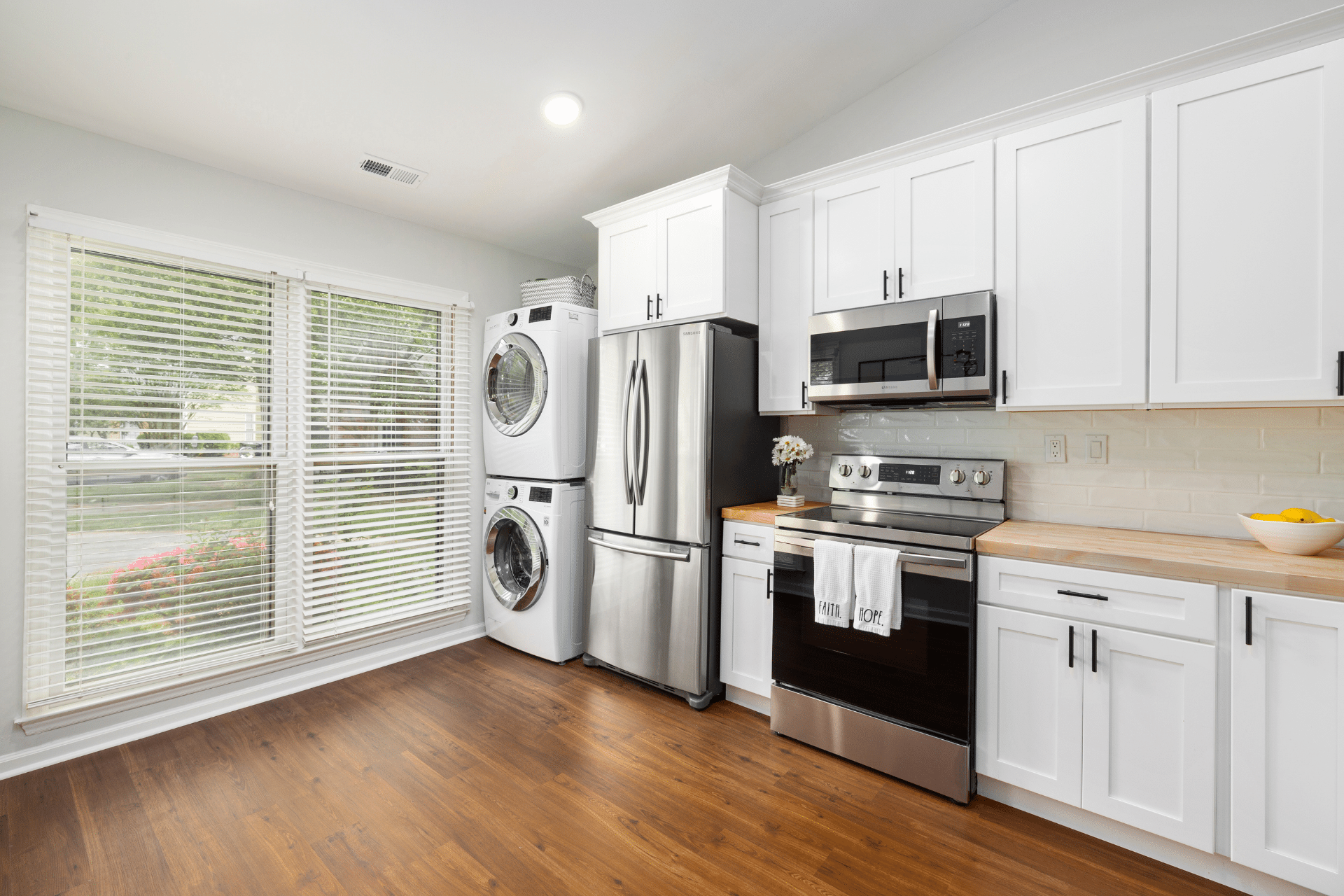Buying appliances at big box hardware stores have made a lot of aspects of homeownership easier. Instead of searching around multiple stores for different home-related items, consumers can simply walk into a store — or shop online — for virtually anything you could need for your home.
This convenience may seem like a huge advantage for people who are involved in real estate investing, especially when it comes to replacing appliances. But, while the prices of appliances at big box stores may seem lower, it often pays off to opt for a local appliance specialty store for your rental property.
There are many reasons why this is the case, and we’ll discuss a few of these below.
Not Apples to Apples
One of the biggest downsides of buying appliances from big box stores for your Single Family Residential (SFR) real estate investing property is it’s easy to make a mistake and not compare apples-to-apples projects. This is a common issue that experienced Austin property management companies have encountered with their clients.
The appliance that the rental property owner sees online or in the store might look nice and have a great price, but it might not match the quality of the unit’s existing appliance. It might be a new refrigerator, for instance, it might lack features like an ice maker or a water dispenser.
In real estate investing, it’s important to replace “like for like” appliances to meet the expectations of your tenants.
Buying the Wrong Appliance
Appliances vary not only in brand but also in specifications, such as gas or electric stoves. If you don’t know which one you’re supposed to buy, you could be making a huge and costly mistake.
When you purchase appliances from a big box store, they’re not going to be able to help you figure out which appliance you need. 1836 Property Management has some horror stories to tell in this regard.
One of the property management company’s clients needed to replace a dishwasher and stove top at the same time. They ordered these from a big box store, only to find out a day later that both immediately went on backorder.
When the appliances finally came in — 100 days later — the third-party vendor responsible for delivery and installation realized that the old stove top was electric while the new one was gas. Meanwhile, the dishwasher was hard-wired, a type the vendor doesn’t install.
What happened was the rental property owner had to hire someone else to install the dishwasher — spending more money in the process — and had to return the stove top to order the correct one.
Major Install Issues
Another huge issue with buying appliances from a big box store in real estate investing is that these stores outsource delivery and installation to third-party companies. Unfortunately, these companies don’t seem to care much.
These installers tend to give up easily when faced with even a little bit of friction during the process. If they don’t have the proper fittings, they won’t install it.
Then, the tenant has to decide whether to accept an uninstalled appliance in the unit or reject it, prompting them to contact the rental property owner to figure out what to do.
This puts a lot of undue pressure on the tenant.
There are plenty of nightmare stories about these third-party installers, including cases where vendors attempted to avoid appliance delivery entirely.
Working with a Local Appliance Specialist Makes Sense
These nightmare stories are just one reason why 1836 Property Management works with local appliance specialists in the Austin region on behalf of their clients.
The Austin property management company sends their investors an estimate from a local vendor who promises their work. These specialists will coordinate with the tenant to ensure exact delivery time, rather than a vague four-hour window. Furthermore, the local expert will install the appliance right on the first trip, ensuring its functionality.
Will the appliance from local specialists seem pricier upfront than what’s available at a big box store? Most likely, yes. But buying appliances with this additional initial cost is a worthy investment in the long run.
With big box stores, if the appliance isn’t backordered, they’ll call the Austin property management company to schedule the delivery. This involves sharing the tenant’s information and coordinating delivery timing with the vendor and the tenant.
If there’s any problem at all, the tenant will inevitably call the property management company and complain.
There are other potential issues as well. If the delivered appliance arrives damaged, what will the tenant do? The tenant might accept it due to necessity, leaving the rental property owner with a sub-optimal appliance.
If the tenant rejects the damaged appliance, then not only does the rental property owner and Austin property management company have to arrange a replacement, but the tenant will be upset and frustrated by the process.
You Can Control Property Maintenance Issues
A survey by 1836 Property Management in 2023 found that the second most common reason for tenants not renewing their lease was maintenance issues, second only to rent increases. While rent increases are sometimes out of the rental property owner’s control, maintenance issues are something you can control.
Trying to save $200 on an appliance in the short term could cost you thousands of dollars in the long run if tenant dissatisfaction leads them to renew their lease. An appliance may not sound like a big deal, but for someone reliant on refrigerated medication, for example, it’s an essential part of life.
1836 Property Management emphasizes the importance of empathizing with residents engaged in SFR real estate investing. Consider how tenants feel during lease renewal, particularly in regard to maintenance issues. Sometimes, spending a little extra money so you can do things right is the best move for long-term investment success.
To learn more about 1836 Property Management and what we can do for your rental property, contact us today.






